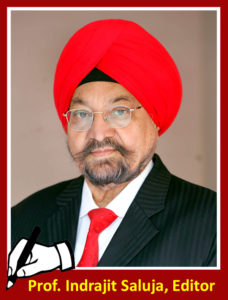 The world mourns the passing of Dr. M.S. Swaminathan, a pioneering figure in the field of agriculture and a relentless advocate for sustainable development and food security. Dr. Swaminathan’s contributions to agriculture, particularly in the context of India, are immeasurable, and his legacy will continue to inspire generations to come.
The world mourns the passing of Dr. M.S. Swaminathan, a pioneering figure in the field of agriculture and a relentless advocate for sustainable development and food security. Dr. Swaminathan’s contributions to agriculture, particularly in the context of India, are immeasurable, and his legacy will continue to inspire generations to come.
Born on August 7, 1925, in Kumbakonam, Tamil Nadu, India, Dr. M.S. Swaminathan displayed a keen interest in agriculture from a young age. He pursued his education with dedication, earning a Bachelor of Science degree in Agriculture from the University of Madras. His thirst for knowledge led him to the United States, where he obtained a Ph.D. in Genetics from the University of Wisconsin in 1952.
Dr. Swaminathan’s most significant contribution to agriculture was his pivotal role in India’s Green Revolution. In the mid-1960s, India was grappling with food shortages, and millions of its citizens faced starvation. Dr. Swaminathan’s innovative work in crop breeding, particularly wheat and rice, played a crucial role in increasing crop yields. He introduced high-yielding varieties of these staple crops, which led to a remarkable increase in food production.
This transformation in agriculture, known as the Green Revolution, not only saved countless lives but also established India as a self-sufficient food producer. Dr. Swaminathan’s dedication to improving crop genetics and farming practices earned him the nickname “Father of the Green Revolution in India.”
While the Green Revolution brought immediate relief, Dr. Swaminathan was acutely aware of its environmental consequences. He recognized that the excessive use of chemical fertilizers and pesticides could lead to soil degradation and harm the ecosystem in the long term. Consequently, he became a strong advocate for sustainable agriculture.
Dr. Swaminathan stressed the importance of biodiversity, organic farming, and integrated pest management techniques to ensure food security while preserving the environment. His commitment to sustainable practices paved the way for the adoption of eco-friendly farming methods and the protection of India’s rich agricultural heritage.
Dr. Swaminathan’s influence extended far beyond the borders of India. His expertise was sought after by international organizations and governments facing food security challenges. He served as the Director-General of the International Rice Research Institute (IRRI) and played a pivotal role in developing strategies to combat global hunger. His collaborative efforts with other scientists and organizations contributed to advancements in agricultural research worldwide.
Beyond his scientific achievements, Dr. Swaminathan was a compassionate humanitarian. He believed that access to food was a fundamental human right. Throughout his life, he advocated for policies and programs aimed at alleviating poverty and ensuring equitable access to food resources.
As we reflect on his life and legacy, it is clear that Dr. Swaminathan’s contributions transcend borders and generations. His passion for feeding the hungry and protecting the planet serves as a timeless inspiration for scientists, policymakers, and advocates working towards a more sustainable and equitable world.
In the face of the challenges posed by climate change, rising populations, and evolving agricultural practices, Dr. Swaminathan’s principles of innovation, sustainability, and compassion will continue to guide our efforts to ensure a food-secure and resilient future for all. His memory will forever be etched in the annals of agricultural history as a beacon of hope and progress.





Be the first to comment